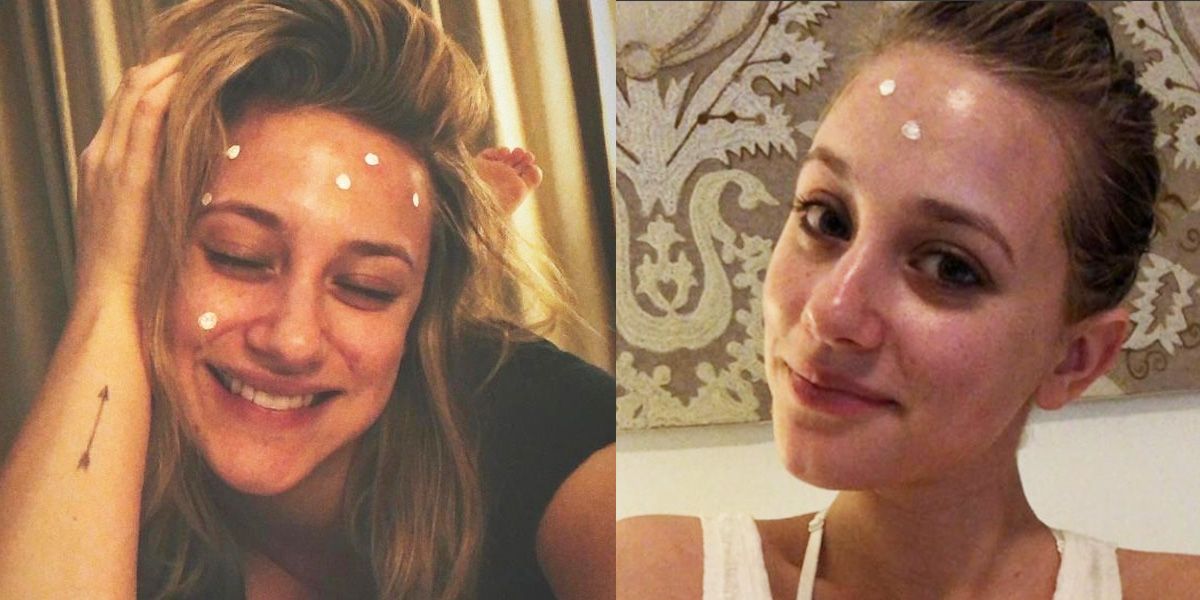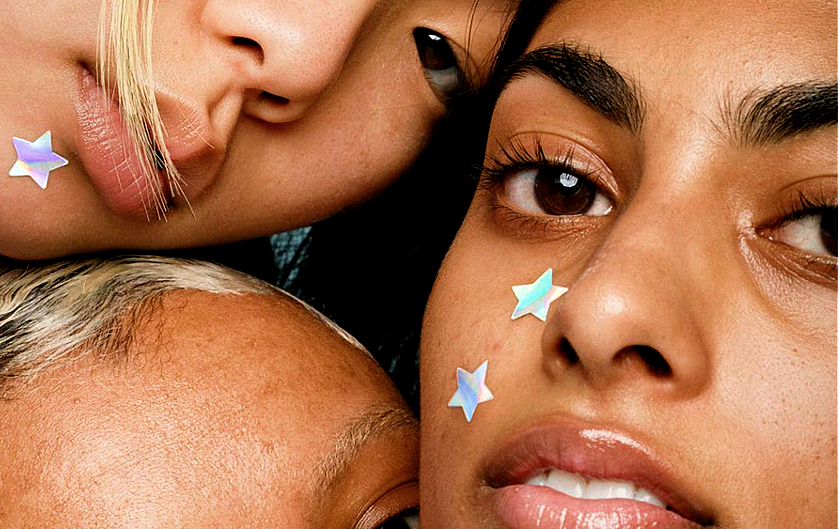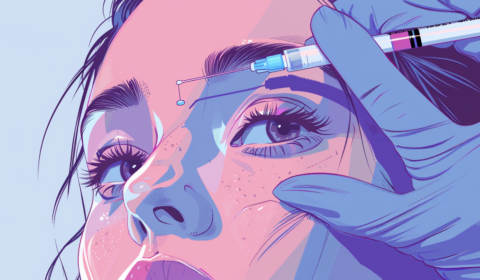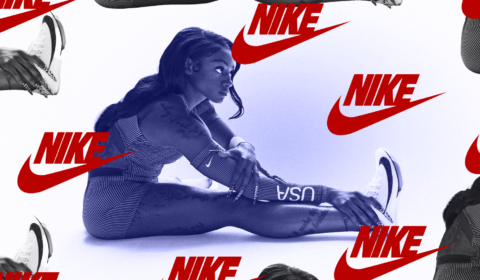As the movement grows alongside a new, pandemic-induced focus on self-care, so too does acceptance towards skin conditions long steeped in needless stigma.
‘Pimples are in,’ announced Justin Bieber to his 151 million Instagram followers in 2018, paving the way for a brand-new age of acne representation.
In the two years since – particularly following the Coronavirus outbreak which brought with it worldwide lockdowns and a heightened interest in natural beauty and grooming habits – it appears a general consensus has been reached: that it’s high time to start normalising spots.
Now, as Gen Z continues to gravitate further from the full beat obsession and overdone Instagram face that’s defined an entire generation of millennial influencers, the social change-driven demographic is overlooking whatever beauty ‘rules’ are currently in place, fighting to transform them in favour of more realness. These newfound values have marked a huge shift in how the beauty industry as a whole is approaching how to meet the needs of Zers no longer searching for ways to perfect a ‘look.’
Instead, as young consumers continue to celebrate themselves just the way they are, brands are expected to abandon outdated stigmas surrounding imperfection and encourage the importance of being comfortable in one’s own skin.


In fact, alongside increased visibility of breakouts in advertising campaigns and movements such as #freethepimple gaining serious traction on social media, it’s become somewhat fashionable to share experiences with skin conditions online. Refusing to cover up, everyone from Kendall Jenner to Lili Reinhart has posted about their journeys, proudly showing off their blemish cream-dotted faces and ditching the seemingly ingrained tendency to heavily edit their pictures.
Thanks to the burgeoning pro-acne conversations that have emerged on the back of this, while spots may be considered by some a frivolous topic for which to advocate, the push against skin-shaming is moving at breakneck speed and brands have begun to take note. In an effort to cater to clued-up consumer mindsets, a slew of companies have recently come to market, offering innovative avenues of empowerment and self-expression without tokenistic messaging.
/cdn.vox-cdn.com/uploads/chorus_image/image/65690680/stars_2.0.png)
/cdn.vox-cdn.com/uploads/chorus_image/image/65690680/stars_2.0.png)
At the forefront is Starface, launched last year to ‘make having acne cool’ with its variety of star-shaped hydrocolloid patches designed to ‘bring some much-needed fun and glamour to acne treatments,’ (according to co-founder, Julie Schott).
Challenging the perception that pimple patches ought to be transparent and draw as little attention as possible, the stars are there to be flaunted, especially in the age of TikTok where unfiltered videos under the myskinandme hashtag garner millions of views. ‘What’s great about Gen Z is that they’re ready to embrace real skin,’ says Schott. ‘They post unedited selfies, are open about their issues, and don’t feel the need to show this picture-perfect life that perhaps was the trend on social media a few years ago.’
Starface, in actively deciding to enhance and accentuate what other brands may choose to conceal, is spreading the message that we shouldn’t feel conditioned to believe that imperfections must be hidden away nor should our sense of self-worth be wrapped up in the way our skin looks.
It’s this same message that’s at the core of the #AcnePositivity movement and one that, advocated by forward-thinking Gen Z consumers and the brands specifically targeting them will undoubtedly shape the future of how we perceive beauty.

















